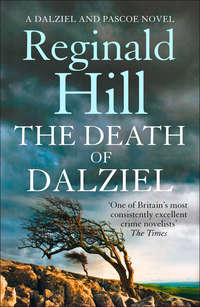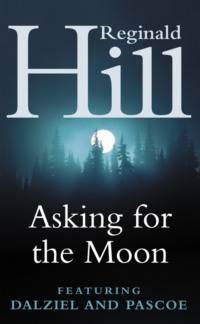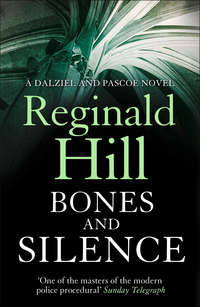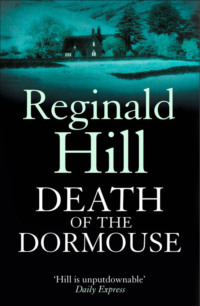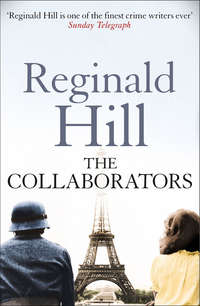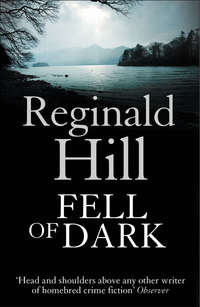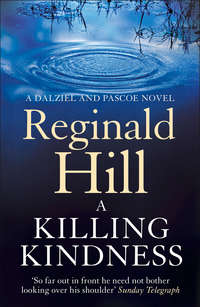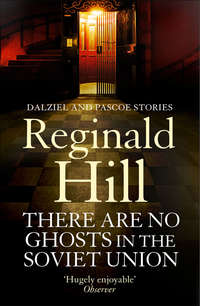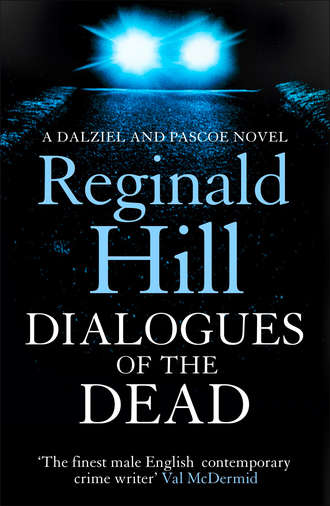
Полная версия
Dialogues of the Dead
‘And the other, guv? Driving straight at that kid on the bike? If the Wordman did that, well, that’s not neglect, is it? That’s pretty positive, wouldn’t you say?’
‘What did you call him?’ said Headingley, postponing answering the question.
‘The Wordman,’ said Hat. He explained about the In principio, then explained his joke, and if anything got an even dustier response than he had in the library. Clearly the DI felt that giving the author of the Dialogues a nickname gave him substance, making him harder to ignore, which was what he would have liked to do.
But Hat was determined to pursue him to a decision.
‘So you think we should just drop it, guv?’ he persisted.
He watched with hidden amusement as uncertainties chased each other like clouds across Headingley’s broad open face.
‘Well, I suppose you’d better take a look. Likes his t’s crossed with a ruler, that coroner,’ said Headingley finally. ‘But don’t waste too much time on it. I want a full report on my desk first thing tomorrow. That’s the real test of a theory, son, how much of it you’re willing to put in writing.’
‘Yes, guv. Thank you, guv,’ said Bowler, just staying this side of open mockery. Headingley might be a boring old fart, ambling towards retirement with little interest in anything other than protecting his ample back, but he still had rank, plus he had survived for many years under the unforgiving eye of Andy Dalziel, so there had to be something there.
He went to his desk, checked out the names and addresses he wanted, then set out on his quest. He had a double reason for being meticulous now – first, to impress Rye Pomona; second, to satisfy George Headingley. Not that he needed either part of the reason to motivate him. One thing he’d quickly learned as a young graduate cop was to be nit-pickingly thorough if you didn’t want some antique plod who’d come up the hard way shaking his head and saying, ‘Nay, lad, just because tha’s on the fast track don’t mean tha’s allowed to cut corners.’
He started with Constable Dave Insole who’d been driving the first police car to arrive at the scene. Once Bowler’s easy manner had dissolved his natural suspicion that CID was second-guessing him, Insole was co-operative enough. In his view, the most likely explanation was that Ainstable had stopped for a pee, clambered down the bank, slipped and fell as he reached the bottom.
‘You mentioned some scuffs on the parapet in your report,’ said Bowler.
‘That was my partner, Maggie Laine,’ said Insole, grinning. ‘Got ambitions to join your lot, has Maggie. Always looking for clues. No, he got caught short, and was in such a hurry to get out of sight of the road, he slipped. If he’d wanted to sit on the parapet or piss over it or whatever, he’d have parked on the bridge itself, wouldn’t he?’
‘His tool box was by the parapet, wasn’t it?’
‘Yeah, but by the time we arrived there were half a dozen yokels gawking, any one of them could have moved it out of the way.’
‘But hardly have taken it out of his van,’ said Hat. ‘Which was parked where? Not actually on the bridge, I gather?’
‘No. He stopped just before it, right where he could scramble down the side to the bank of the stream,’ said Insole triumphantly.
‘Just about where he’d have stopped if there’d already been a car parked on the bridge then?’ said Bowler.
‘Yeah, I suppose, but what are you driving at?’
‘Better ask Maggie,’ laughed Bowler, heading for the door.
The Ainstable house was a thirties semi on the northern fringe of town. The stout woman who answered the door turned out to be Mrs Ainstable’s sister from Bradford who’d come to stay. The first thing Bowler noticed as he was ushered into the living room was a tank of tropical fish standing on top of a sideboard. The second thing was a small pale-faced woman curled up on a large settee. Grief usually ages, but in Agnes Ainstable’s case it had shrunk the mature woman into an ailing child who looked more like her sister’s daughter than her sibling.
But when she spoke, Bowler began to understand why the coroner had opted to adjourn the inquest for further enquiries. Her attitude was simple. If something as slight as a slip of the foot had deprived her of her husband, she wanted the circumstances to be laid out before her in unambiguous detail. There was nothing rational in her demands, but they were made with an intensity that would have daunted the most insensitive of men.
The upside of this was that she answered all Bowler’s questions without showing the slightest curiosity about his reasons for asking them. It was enough that they related to the further enquiries the coroner had promised her.
Yes, Andrew had once talked about his tropical fish on a local radio chat show; yes, they’d been to Corfu for their holiday this year; yes, they’d had a meal at the Taverna.
At the front door as he left, the sister said, half apologetically, ‘It’s her way of hanging on to him. Once she admits she knows everything there is to know, he’s gone completely, and that terrifies her. All these questions you’re asking, they mean anything or are you just going through the motions?’
‘Wish I knew,’ said Bowler.
He wasn’t being disingenuous. There were many ways in which the writer of the First Dialogue could have got the details it contained. He could simply have known Ainstable, be a workmate or a member of the tropical fish fancy, have travelled to Corfu on the same package holiday … the possibilities if not endless were numerous enough to leave suspicion uselessly fluid. Facts were the only hardener that a good detective took any heed of. And he was a long way short of anything he’d like to hear himself explaining to a nit-picking coroner.
Now he drove south, leaving the town behind, and speeding along Roman Way as young David Pitman had sped on his way home to Carker.
The Pitman house was a spacious whitewashed cottage in a large garden, very different from the Ainstable semi, but the grief it contained was much the same. Bowler spent a heart-rending hour being taken through a family photograph album by Mrs Pitman, David’s mother. But he came away with confirmation that everything written in the Second Dialogue about the bazouki was accurate.
On his way back into town along Roman Way he stopped at the accident site. It was easy to identify. The tree which the bike had hit bore a scorched scar like a roughly cauterized wound. The impact of the boy’s body against the neighbouring tree had left damage less visible, but close up the bruising of the smooth beech bark was unmistakable.
He didn’t know why he’d stopped. Even Sherlock Homes would have been hard put to glean anything significant from the scene. Without the Dialogues, there was little suspicious in either of the deaths and in both cases it was easy to think of ways the Wordman could have got hold of the information they contained.
So really he’d got nothing, which was precisely what George Headingley hoped he would get. But he hadn’t joined CID to keep the likes of old George happy.
He raised his eyes to take in the long straight road down which the Roman legions had marched for the last time seventeen hundred years ago when the order came to abandon this chilly corner of the empire to its troublesome natives. The town boundary was only a mile away but the brow of the hill completely hid any sign of its encroaching sprawl. Only one building was visible among the fields bordering the road and that was an old grey farmhouse which looked like it had been there long enough to be naturalized as part of the landscape.
You’d have a perfect view of the road from its windows, thought Bowler.
He started the MG and drove up the long potholed driveway to the house which had the initials I.A.L. and the date 1679 engraved over the door.
A woman answered his ring. At first glance to Bowler’s young eye she looked as old as the house. But the voice which demanded his business was strong, and now he saw that through a fringe of grey hairs he was being observed by a pair of bright blue eyes, and if her skin was beginning to wrinkle like an old apple’s, she still had the flush of a sweet pippin in her cheeks.
He introduced himself and learned he was speaking to Mrs Elizabeth Locksley. When he mentioned the accident, she said, ‘How many times do you need told?’
‘Someone’s been round?’
‘Yes. Next morning. Lad in uniform.’
So they had been thorough. No mention of the visit in the report, which meant it was subsumed under the terse comment, No witnesses forthcoming or discovered.
‘And you told him?’
‘Nothing. Which was all there was to tell. We go to bed early here and sleep sound.’
‘Speak for yourself,’ called a man’s voice from within.
‘Nowt wrong with your lugs then,’ she shouted back.
‘Nor my eyes either. I told you what I saw.’
Bowler looked at the woman enquiringly and she sighed and said, ‘If you want to waste your time …’ then turned and vanished into the house.
He followed her into a long living room which, apart from the addition of a TV set on which Mad Max was playing, didn’t look like much had been done to it since the seventeenth century. A man rose from a chair. He was a giant, at least six and a half feet, and there was very little clearance between his head and the exposed crossbeams. He shook Bowler’s hand with a vigour that made him wince and said, ‘You’ve come to ask about the lights. Didn’t I tell you, Betty?’
‘Not more than fifty times, you daft old sod,’ she said, switching off the television. ‘So tell him, you’ll not be satisfied till you do.’
There was some exasperation in her voice but it got nowhere close to overpowering the strong affection in her gaze as she looked at the man.
‘I will,’ he said. ‘I got up to have a pee – old man’s trouble, it’ll come to you, lad, if you live that long. I looked out the landing window and I saw this headlight going down the hill there, just the one. Bike, I thought. And the bugger’s moving. Then I saw these other headlights, two on ’em, so, a car, coming this way. Out of nowhere they came. One moment dark, next there they were. Then the single light were all over the place. Till suddenly it went out. And then there were a puff of flame.’
‘And what happened then?’
‘Don’t know. If I’d stayed any longer I’d have pissed down the stairs and then I’d have been in trouble.’
He roared with laughter and the woman said, ‘You’re not wrong there, lad.’
‘And did you tell this story to the other policeman who came?’ asked Bowler.
‘No, I didn’t.’
‘Why not?’ he asked.
‘Didn’t recall it till later,’ said the man.
‘Later?’
‘Aye,’ said the woman. ‘Later. He usually recalls things later if he recalls them at all.’
There was something going on here he didn’t yet fully understand. He decided to concentrate on the woman.
‘You didn’t think it worthwhile ringing us when you heard Mr er …?’
‘Locksley,’ she said.
‘Your husband?’ he said, looking for clarity where he could find it.
‘Well, he’s not my bloody tallyman!’ she said, which seemed to amuse them both greatly.
‘You didn’t think to contact us?’ persisted Bowler.
‘What for? Sam, what night was it you saw the lights?’
‘Nay, lass, that’s not fair. It was this year, but, I’m certain of that.’
‘And what film would you have been watching that day whenever it was?’
He thought a moment then said, ‘Likely Mad Max, it’s my favourite. Do you like it, mister? He was a cop, too.’
‘It takes all sorts,’ said Bowler. ‘Yes, I’ve seen it on the box. Bit too violent for my taste.’
He was beginning to get the picture. In the interests of diplomacy he’d have liked to get the woman by herself, but he had a feeling that she wouldn’t take kindly to any attempt to talk behind her husband’s back.
He said, ‘So you think that Mr Locksley might be confusing what the other policeman told you about the accident with images from the movies he watches?’
He kept his voice low but the man’s sharp ears picked him up with ease.
‘You could be right there, lad,’ he said cheerfully. ‘I do get things mixed up and as for recalling what happened when, I’m hopeless. Doesn’t bother me mostly, but there’s some things from the past it’d be nice to bring back now I’m getting old. For instance, I can’t recall the last time I had a good jump, and that’s sad.’
‘You silly old bugger,’ said his wife fondly. ‘It was just afore you had your breakfast this morning.’
‘Was it?’ he said, regarding her with bright hopeful eyes. ‘And did I enjoy it?’
‘Well, you asked for a second helping of porridge,’ she said.
Their laughter was infectious and Bowler was still chuckling as he let himself out. As he began to drive away, Mrs Locksley came to the door and called, ‘Hey, just because his memory’s going and he gets a bit confused, doesn’t mean he’s wrong, but.’
‘That,’ said Bowler, ‘is very much the trouble.’
But it wasn’t his trouble; it was or soon would be DI Headingley’s. Something obliging him to make a decision would drop into Jolly George’s broad lap like a mug of hot coffee. It was a prospect not altogether displeasing.
But the DI, when provoked to action, could be a nimble ducker and weaver, and it would be wise not to leave any gaps for him to slip through, saying accusingly, ‘But you forgot to do that, Constable.’
Bowler scanned the possibilities and saw one he hadn’t covered. The Greek restaurant where the Wordman claimed to have dined on the night he talked to David Pitman. He glanced at his watch. Five forty. Probably the Taverna didn’t open till seven or half six at the earliest. He’d never eaten there – young detectives got used to eating on the hoof and became uneasy if they found themselves spending more than ten minutes on a meal – but he had followed Franny Roote there one night last week, watched him go inside, thought, Sod this, it’s unofficial and I’m not on overtime, and headed home to a takeaway and a soccer match on the telly.
That was when? Suddenly he felt uneasy. Wednesday, Pascoe had given him the job, so it had to be … He pulled over and took out his pocketbook to check the date.
Shit! It was Friday, the same night that young Pitman had had his ‘accident’.
Best not to mention it, he decided. It would just muddy the waters. He hadn’t gone inside, he hadn’t seen any other customers, he hadn’t done anything except sit in his car for a minute watching Roote go into the building. If his own bad vibes about the two deaths were translated by the brass into a full-scale investigation – which he doubted, given George Headingley’s determination not to let his boat be rocked with the harbour of retirement in sight – then he might speak. Or perhaps not. Somehow he suspected from the way Dalziel had been looking at him lately that the fat bastard would be glad to put a black mark against his name simply for being in the vague vicinity of a possible crime.
For a moment he even thought of scrubbing his plan to visit the Taverna, but only for a moment. Wanting to cover his back didn’t stop him from being conscientious. Then, because he was a positive thinker, much happier looking on the upside of things than contemplating possible downsides, he suddenly grinned as he saw a way of getting something good out of the situation.
He took out his mobile and dialled the Central Library number. It rang for a long time before someone answered. He recognized the voice.
‘Mr Dee? Hi, it’s DC Bowler. Listen, is Rye there?’
‘I’m sorry, she’s gone home, like all sensible people,’ said Dee. ‘The only reason you got me was that I often stay on after closing time to do some work.’
‘That’s very noble of you,’ said Bowler.
‘I fear you credit me with more virtue than I possess. I don’t mean work for the public weal. This is private research for a book I’m writing.’
‘Oh yes. Detective story, is it?’
Dee laughed, picking up the irony.
‘I wish. No, it’s a history of semantic scholarship. A sort of dictionary of dictionaries, you might call it.’
‘Sounds fascinating,’ said Bowler unconvincingly.
Dee said, ‘I think I should work on your projection of sincerity if you fancy trying your hand at undercover work, Mr Bowler. Now, is there any way that I can be of help to you?’
‘Only if you’ve got a number I can reach Rye at,’ said Bowler.
There was a pause then Dee said, ‘Well, I do have her home number, but I’m afraid we’re not allowed to give such things out to the public at large. But I could pass on a message, if you like.’
Bastard! thought Bowler.
He said, ‘It was just about my enquiries. I’m going to the Taverna this evening to check out a few things and I thought as Rye was so interested she might care to join me. I’ll be there at seven.’
‘Now that does sound fascinating. I’ll pass your message on. I’m sure Rye will be as intrigued as I am.’
But you’re not invited, Dick-head Dee, thought Bowler.
Then, being both a fair and a self-analytical young man, he asked himself, Am I jealous? But quickly, because he was above all a young man, he went on to dismiss as absurd the idea that in matters of love a dotard of at least forty years could give him any cause for jealousy.
Showered, shaved, and arrayed in his sharpest gear, he was in the Taverna by six forty-five. He ordered a Campari soda because he loved the colour and it gave him a sense of sophistication. At seven ten he ordered another. A third at seven twenty. At seven thirty, tired of sophistication, he ordered a pint of lager. At seven forty-five he ordered a second pint and asked to see the manager.
This was Mr Xenopoulos, short, fat and genuinely Greek though he spoke English with a disconcerting Liverpool accent. Suspicious at first that Bowler was an Environmental Health snoop, he became more helpful when he learned that his enquiries were to do with Dave Pitman, though he did wonder mildly whether it might not have been more sensible for the detective to have started interviewing his staff an hour earlier when he first arrived rather than now when the restaurant was getting busy. Both he and the waiters expressed what seemed like genuine sorrow at the dreadful accident which had overtaken their bazouki player, but were unable to recall anything pertinent about the patrons that night. Solitary diners were not unusual, attracted by the sense of communal jollity which often developed as the evening wore on and the dancing began.
‘But why’re you asking all these questions?’ enquired Xenopoulos finally. ‘It was an accident, wasn’t it?’
‘So far as we know,’ said Bowler carefully. ‘But it’s possible one of the diners that night could have been a witness. You keep a record of table bookings, I suppose?’
‘Natch. Like a copy of that page in the reservation diary, would you?’ said the manager, pre-empting Bowler’s next request. ‘No sweat. Have a seat at the bar and a drink on the house, I’ll be with you in a jiff.’
Bowler had another pint of lager and was sitting staring into the empty glass like Frank Sinatra about to burst into ‘One More for the Road’ when a hand tapped gently on his shoulder, a musky perfume rubbed seductively against his nose and a voice breathed in his ear, ‘Hi. Whatever you lost in that glass, I think you’ve swallowed it.’
He spun round on his stool smiling, and found himself looking at a small, slim blonde in her mid-twenties, with piercing blue eyes and a generous mouth whose smile matched his, except that it did not fade as his now faded.
‘Oh, hi,’ he said. ‘Jax. How’re you doing?’
Jax Ripley considered the question for a moment then said, ‘Well. I’m doing well. And you, Hat. How are you? All by yourself?’
‘Yeah. That’s right. I am. You?’
‘With friends, but when I saw you at the bar, I thought no one so good looking should be so sad so early in the evening and came across. So what are you here for, Hat? Business or pleasure?’
Discretion vied with ego. She was wearing a dress which didn’t offer much hope of concealment to even the smallest of microphones, but with Jax the Ripper, you never could tell.
He said, ‘Pleasure. Or it would have been if I hadn’t got stood up.’
‘My favourite policeman? Tell me her name and I’ll let the world know what a stupid cow she is.’
‘Thanks, but maybe not. I’m a great forgiver,’ he said.
She regarded him quizzically for a moment then her gaze drifted over his shoulder.
‘Mr Bowler, here’s that page you wanted. Hope it’s useful, but a lot of our customers just come in off the street on the off chance.’
He turned to find Xenopoulos proffering a photocopied sheet.
‘Yes, thanks, that’s great, thanks a lot,’ he said, folding it and shoving it into his jacket pocket.
He turned back to the woman to find her expression had shifted from quizzical to downright curious.
‘Just improving the not so shining hour,’ he said.
‘Yes? Anything that would improve mine?’ she asked. ‘Over a friendly drink?’
‘Don’t think so,’ he said. ‘Really, Jax, it’s nothing.’
Her unblinking eyes made him feel like a guilty child, so he let his gaze drift over her shoulder. And found himself looking straight at Andy Dalziel who had just come into the restaurant with the well-rounded woman rumour had it he was getting it on with. But the expression on the Fat Man’s face suggested he had slaughter rather than sex on his mind.
Bowler jerked his gaze back to Jax Ripley whose eyes by comparison were soft and kind.
‘That drink,’ he said, ‘make it a tequila sunset.’
‘You mean sunrise?’
‘I know what I mean,’ he said.
CHAPTER SEVEN
Detective Inspector George Headingley was a stickler for punctuality. With the end of his career in sight, he might have decided he wasn’t going to do anything he didn’t want to do, but that didn’t mean he wasn’t going to be unpunctual not doing it. He was due at his desk at eight thirty the following morning and at eight twenty-nine he was approaching it with the measured tread which made his footsteps recognizable at fifty paces.
He could see that the cleared top which he prided himself on leaving at the end of every shift had been sullied by a document. At least the sullier had taken care to place it dead centre so that in many ways it enhanced rather than detracted from the effect of perfect order which Headingley was always at pains to achieve.
He hung his coat up, removed his jacket and draped it over the back of his chair, then sat down and pulled the document towards him. It was several pages thick and the first of these declared that its author was DC Bowler who, as requested, had gathered together all available information which might help DI Headingley to assess whether anything in the deaths of Andrew Ainstable or David Pitman required his, that is DI Headingley’s, further investigation.
Why was it that something legalistic about this form of words made his heart sink?
He opened it and began to read. And soon his heart was sinking deeper, faster. He’d wanted firm no-no’s so that he could consign these daft Dialogues to the waste bin, but all he was getting was a series of boggy maybe’s.
When he finished he sat for a moment, then gathered all the papers together and set out in search of Bowler.
There was no sign of him. He encountered Wield and made enquiry after the young DC.
Wield said, ‘Saw him earlier. Think he went off to do something for Mr Pascoe. Was it urgent?’
‘Was what urgent?’ said Andy Dalziel, whose approach was sometimes audible at twice the distance of the DI’s but who could also exercise the option of materializing like the ghost of Christmas Yet To Come, moving silent as mist over the ground.
‘The DI’s looking for Bowler,’ said Wield.
‘And the bugger’s not in yet?’
‘In and out,’ said Wield reprovingly.
‘Aye, like Speedy Gonzales,’ said Dalziel with a lip curl like a shed tyre. ‘What do you want with him, George?’


